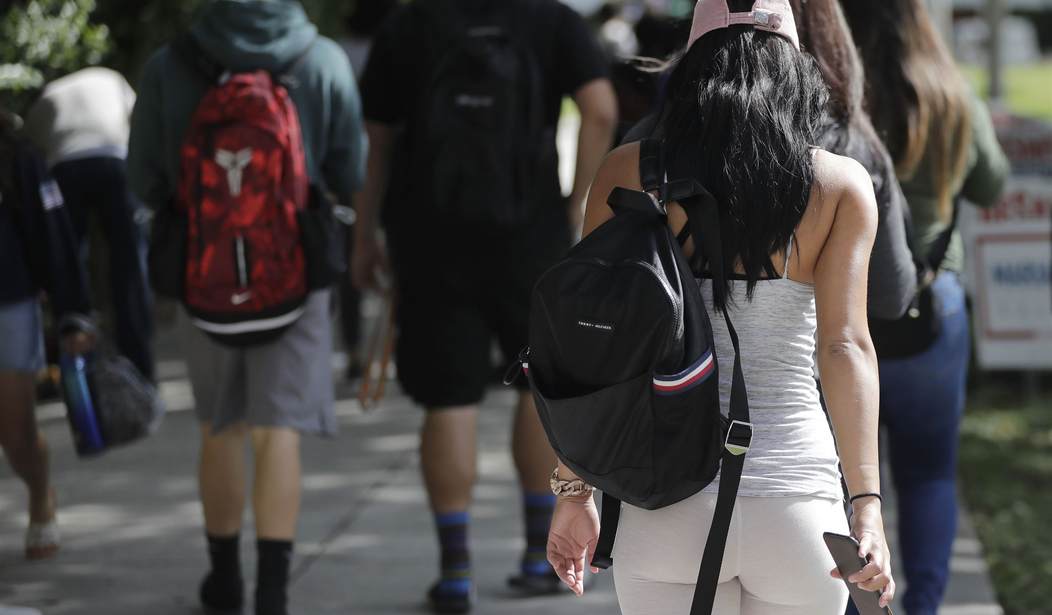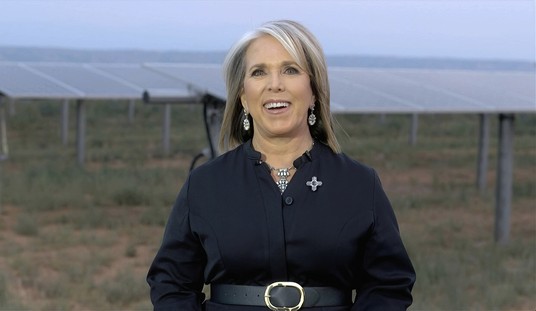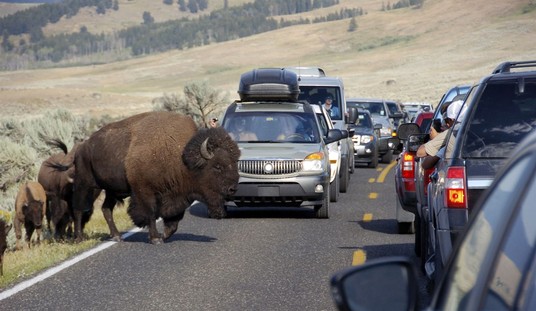The diversity, equity, and inclusion (DEI) movement in K-12 schools and universities is shaping up to be yet another topic of debate as the nation grapples with how its institutions should handle issues pertaining to race and ethnicity.
Proponents of DEI claim that it promotes greater acceptance and diversity and tout it as a way to combat the effects of racism in the workplace, academy, and government. On the other hand, critics on the left and right argue that the movement has gone too far and has become nothing more than a way for far-left progressives to force their ideology on everyone else. Indeed, politicians in red states have gone so far as to enact legislation and policies designed to eliminate or curb the impact of DEI.
Politico reported:
To save free speech on college campuses, Republican lawmakers and governors say it’s time to stop talking about diversity, equity and inclusion.
A movement to temper difficult conversations about race in the classroom, promote “patriotic” education and limit how gender is discussed with young kids now includes nixing college DEI initiatives conservatives equate with “wokeness” and Cold War-era “loyalty oaths.”
The outlet notes that DEI programs have existed in varying iterations “for decades across school and government with the goal of both increasing the share of people on campus or in the office from communities historically discriminated against, such as women and religious minorities, and making them feel accepted once they arrive.”
“In American higher education, we have been working to make campuses diverse and inclusive for well over 100 years,” said Ted Mitchell, president of the American Council on Education. “This is not about teaching white students to be ashamed or teaching Black students to hate white students. This is about making campuses inclusive communities where everybody can prosper.”
After the murder of George Floyd, the DEI movement boomed as progressives exploited his death to further their agenda. Corporations began expressing their commitment to DEI and began hiring professionals to help them become more diverse. Ironically, many of these officials have been terminated in recent layoffs. Republicans have criticized these initiatives, arguing that they promote exclusion and division based on skin color.
Jay Greene, a senior research fellow at The Heritage Foundation’s Center for Education Policy, told Politico that while it is “good for universities to aspire to be welcoming places to people from many backgrounds, many different experiences, many different perspectives,” he contended that it “has mutated into something not good.”
GOP lawmakers are trying to attack DEI in three different areas: The use of diversity statements for hiring and promotions, terminating required social curriculum, and doing away with the “DEI bureaucracy,” people in charge of facilitating diversity in these universities.
In states like Florida, Georgia, Texas, South Carolina, and others, governors have championed anti-woke laws intended to curtail far leftist indoctrination efforts.
Diversity statements are written documents that outline an individual or organization’s commitment to promoting diversity, equity, and inclusion in their actions, policies, and practices. These statements typically describe an individual or organization’s philosophy regarding diversity and inclusion, as well as specific actions they have taken or plan to take to promote diversity and create an inclusive environment.
In the context of employment, some employers, especially learning institutions, require applicants to submit a diversity statement as part of their application process. These statements allow applicants to demonstrate their understanding of and commitment to diversity, equity, and inclusion, and how they have worked to promote these values in their personal and professional lives.
Texas Gov. Greg Abbott’s chief of staff wrote in a February letter that using diversity statements in the hiring process violates federal and state employment laws. The state’s college’s quickly eliminated the use of these statements in their hiring practices.
Greene said using diversity statements in hiring, promotions or assessing faculty tenure “seems to bear a lot of resemblance to loyalty oaths that were required during the McCarthy era where people had to declare that they weren’t communists.”
Republican lawmakers in Georgia and Missouri are looking to ban DEI in education hiring practices, and South Carolina lawmakers considered eliminating funding for DEI efforts from the state’s public colleges. In Iowa, the Board of Regents is reviewing all DEI programs and efforts and pausing any new ones at several universities.
In Florida, lawmakers passed a measure proposed by Governor Ron DeSantis that would bar universities and colleges from spending on programs related to DEI or critical race theory and require the removal of any major or minor of study that is “based on or otherwise utilizes pedagogical methodology” tied to critical race theory, including Critical Race Theory, Critical Race Studies, Critical Ethnic Studies, Radical Feminist Theory, Radical Gender Theory, Queer Theory, Critical Social Justice, or Intersectionality.
To those who lack an understanding of how DEI has been used by authoritarian progressive types, it might seem that Republicans are going too far in their efforts to crack down on the practice. But there have been several examples showing how it has been abused – especially against those who dare to question the ideology.
A Director of Equity, Social Justice, and Multicultural Education at a California college came forward with her story detailing how she had been harassed, and ultimately fired, for pushing back against antiracist principles and questioning land acknowledgements in gatherings. Inside Higher Ed reported about how Tabia Lee, a black woman, was fired for going against the progressive grain at De Anza College in Cupertino, California.
Lee told the outlet that she was being dismissed for challenging antiracist “doctrine,” opposing the college’s acknowledgments of land belonging to an Indigenous tribe, endeavoring to introduce a “Jewish inclusion” event on campus, refusing to join a “socialist network,” rejecting the gender-neutral terms “Latinx” and “Filipinx,” querying why the term “Black” was capitalized but not “white,” and supposedly displaying disrespect towards a founder of the Black Lives Matter movement.
In a written statement documenting her situation, she wrote, “I have stopped using gender pronouns because I believe that the same toxic attitudes around race are now being promoted under gender; I also believe that the constant emphasis on pronouns and identification of pronouns causes significant discomfort for individuals who identify as gender fluid or who experience gender dysphoria.”
When the former official tried to implement a Google Doc system to better facilitate communication, a colleague accused her of “whitesplaining,” a term used when white folks explain things to minorities in a way that is perceived as condescending. It is one of several terms to shut down opposing views – especially coming from white people.
“I’m a black woman, and [they’re] telling me that I’m white-splaining,” Lee recounted. “[Everyone] acted like I had injured [my colleague] instead of it being the other way around, because I didn’t confess to my white supremacy or whatever.”
Another issue arose when she asked about official school communication capitalizing the word “black” but not “white.”
Lee recommended capitalizing all racial groups based on the National Association of Black Journalists’ suggestion, but she was accused of being a white supremacist.
“For that, I was accused of being a white supremacist,” she said. “These constant accusations of calling people racist or calling them a white supremacists or saying that they’re aligned with right wingers — that’s such ridiculousness. It’s very damaging.”
She was also lambasted for criticizing how the college handled land acknowledgements. For the unwoke folks reading this, land acknowledgments are typically a statement given at the beginning of a gathering that recognizes and respects Indigenous peoples as the traditional owners and custodians of the land on which an event, building, or activity is taking place. The statement may include an acknowledgement of the specific Indigenous group(s) that historically or currently reside on the land, and may also recognize the ongoing impact of colonization and oppression on Indigenous peoples and their land.
In other words, it’s another way for white progressives to virtue signal about how much they love Native Americans.
Lee, who supports land acknowledgments, said she got into hot water when she noted that the people engaging in them were referencing the wrong Native American tribe.
“To me that signals, it doesn’t really matter,” she said. “We’re doing [land acknowledgements] to signal our alignment with critical social justice ideology and not to really make any real changes. It’s a performative, almost pseudo-religious exercise.”
As if that weren’t enough, she also took criticism after she asked for assistance organizing a summit to address anti-Semitism after some students reported they had experienced anti-Jewish bigotry on campus. Co-workers told her the event was not important because Jewish folks are white oppressors.
This is but one of many examples of how DEI, and the far-left ideology behind it, has been used to suppress those who dare to question how it is implemented. While diversity isn’t a necessarily a bad thing, the way the left has leveraged the issue to advance its agenda is certainly a pernicious force in American society. If Republicans want to address this problem, it will also have to come up with a better way to include folks from different backgrounds and viewpoints.













